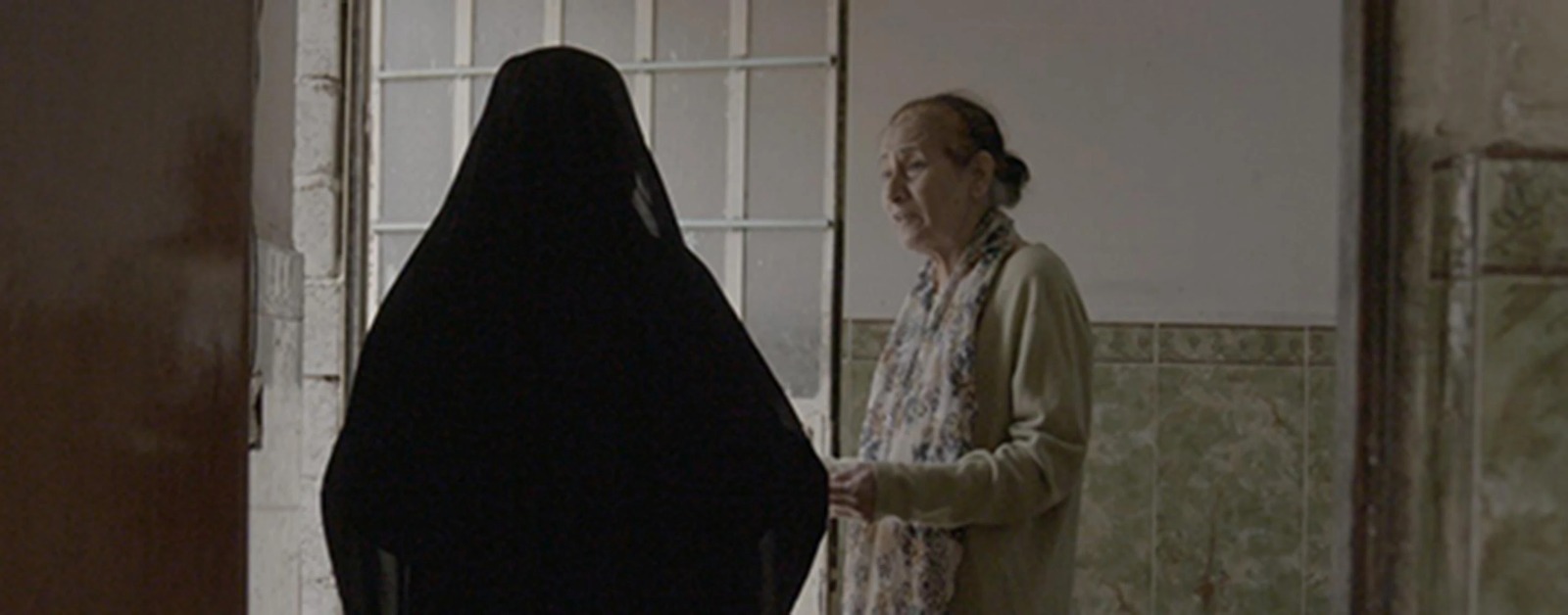Flana
Flana
VERDICT: In a low-key, understated documentary energized by its powerful message, director Zahraa Ghandour makes a soft-spoken, heartfelt plea for compassion for the many abandoned, abused and even murdered female children who are branded as unwanted in Iraq.
Pulling back the veil of silence on a sensitive subject, the documentary Flana explores the question of why Iraqi families abandon their daughters. The answers are painful and encompass everything from religion and clan tradition to Iraqi and tribal law. But at the heart of Flana (literally, the nameless girl) is the human empathy of a first person narrator, the director and producer Zahraa Ghandour, who weaves her own story into the film. Her inquiry into the fate of a childhood playmate gingerly opens the door on a universe of pain and emotional trauma.
One of the first of the new films set to premiere at the Cairo film festival in the Horizons of Arab Cinema section, it introduces a poetic new talent whose filming methods carry both lyricism and a hint of investigative journalism, perhaps stemming from Ghandour’s years as a TV director and producer. She grew up in Baghdad in the house of her aunt Hayat, a midwife who personally came into contact with many of these sad cases. Twenty years later, the director and her aunt come together again in the sprawling house where she grew up, decorated with minimal furnishings, elegant carpets and beloved old pots and pans inherited from a previous generation.
What is immediately striking is how completely this is a woman’s film, sharply defined in the first scene of a baby being delivered in the spare bedroom where Hayat, now in her 60’s, still works. Not only the attitude is female: there are no male characters on screen at all. They are not missed. They are visualized in the words of the women, sometimes with fond pleasure like Hayat remembering the happy days of being around her first suitor (he later moved to Australia), but most often with bewildered angst as violent child beaters and heartless egoists.
The first part of the film follows aunt and her now grown niece, who probes the older woman’s memories about her childhood friend Noor. One day Noor’s mother left her 10-year-old daughter in Hayat’s care while she handled a brief emergency; she never returned, and left no forwarding address. When a family without children offered to adopt the abandoned little girl, an unexpected happy end seemed to be in sight – but they only returned her to Hayat when they got tired of her. Eventually she is taken away by the authorities and deposited in a public shelter – we will hear more about that later. One can’t help but compare the mistreatment of girls like Noor to the safety and satisfaction of the stray cats that hang around the house, obviously far more cared for and loved.
Ghandour’s visit to her aunt’s house is shot at a quiet, steady pace derived from fixed frame shots that are held a long time, letting the viewer introspect on a gently flapping curtain or a rugged gray wall, an atmosphere corroborated by Khyam Allami’s restrained melodic score. Slow motion is also used. This sense of containment is abruptly interrupted as a new character makes her vivid and welcome appearance: the bright redhead Natalie. She is a survivor of the shelter for homeless girls, described as a prison, and is earning a living as a film assistant, among other things. In a typically rebellious moment, she embellishes two girlfriends from the shelter with orange makeup, after we have been told makeup is strictly off limits, and the three of them take off to celebrate New Year’s Eve on the streets, generally a men-only haunt. But the real proof of her fearless spirit is a moving scene in which she reveals she has learned her idealized mother is not dead as she was told, but alive and remarried. In all these years, she has never tried to contact her abandoned daughter.
While the film communicates a great deal about the female condition in Iraq, one would have liked it to go farther in stating what is implicit in its stories and their underlying psychopathologies: sexual abuse and murderous physical violence. The closest it comes is in a final image of a rough-hewn graveyard, called the Cemetery of the Forsaken and reserved for girls murdered by their families, where rocks take the place of tombstones. A title explains that by Iraqi law, a perpetrator who kills a girl can escape punishment, as long as it is a male member of the family.
Director, producer: Zahraa Ghandour
Screenwriters: Zahraa Ghandour, Gladys Joujou
Coproducers: Marc Berdugo, Barbara Conforti
Cinematography: Jocelyne Abi Gebrayel
Editors: Ahmed Abd, Nadia S.
Sound edit and mix: Vincent Pateau
Music: Khyam Allami
Production companies: Karada Films, Lila Production
Venue: Cairo Film Festival (Horizons of Arab Cinema)
87 minutes

